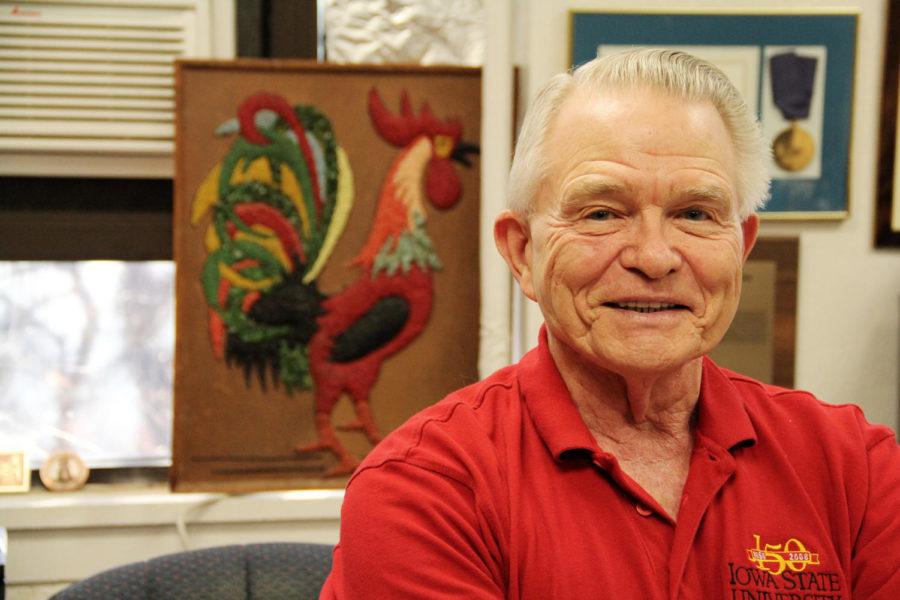American Chemical Society’s selects ISU professor as new president-elect
Photo: William Deaton/Iowa State Daily
Distinguished Professor Emeritus Thomas Barton has been elected the new President of the American Chemical Society.
December 7, 2012
The American Chemical Society, the world’s largest scientific community, has elected Iowa State’s own Tom Barton, distinguished professor emeritus of chemistry, to be its next president-elect.
William Jenks, professor and chairman of the ISU chemistry department, expects Barton’s election to bring positive focus to the university.
“The [American Chemical Society] president is widely viewed as kind of a spokesman for chemistry,” Jenks said. “Obviously he has real responsibilities within the [American Chemical Society], but he’s also a big public face.”
The presidency is a three-year commitment beginning January 1, 2013, when Barton will take office as the president-elect, serve as president in 2014 and as immediate post-president in 2015.
Barton, who previously conducted research in organosilicon chemistry, retired in May after directing the Ames Laboratory from 1988 to 2007, directing Iowa State’s Institute for Physical Research and Technology from 1998 to 2007 and acting as interim director of the Iowa Energy Center in 2009.
“One thing I would like to do is call a meeting of the CEOs of chemical companies in the United States,” Barton said. “We’ll say, ‘Now, what can we change that would keep our jobs here in the United States, keep them from leaking from our borders?’”
One thing that would keep more of these jobs in the United States would be to change labor costs, an option that is neither reasonable nor desirable. Barton said focusing on aspects that can potentially be altered is much more effective than trying to change things that are more or less fixed.
Barton said regulations exist which make business more complicated in the United States that these CEOs feel are unfair and make business more attractive to conduct outside the country.
Another primary issue in the scientific community is kindergarten through 12th grade students’ performance in sciences and mathematics or perhaps their lack of adequate instruction.
Barton said approximately half of U.S. teachers graduated college in the bottom third of their class.
“I think chemistry teachers ought to have chemistry degrees and physics teachers ought to have physics degrees, not education degrees,” Barton said. “They should also take some courses in education.”
Before the election, the blog ChemBark separately asked Barton and the opposing candidate, Luis Echegoyen of the University of Texas at El Paso, questions regarding recent legal matters, stances on use of funding and priorities for the American Chemical Society.
Barton pleased readers with his solid, straightforward answers to the issues.
In Barton’s response to ChemBark’s questionnaire he stated, “If one is not prepared to justify how one is spending someone else’s money, one should not spend it.”
With more than 165,000 members, the American Chemical Society is a large entity with a short presidency. However, Barton hopes his ideas will be well-received and that he will be able to help point the society in a new direction.
“Tom knows an awful lot about what goes on in the university, what administration of both departments and research labs, like the Ames Laboratory, are,” Jenks said. “I think that gives him a perspective that’s helpful when dealing with Congress and press.”
“Everyone gives him very, very good marks. His work is widely admired in the department,” Jenks said.

















